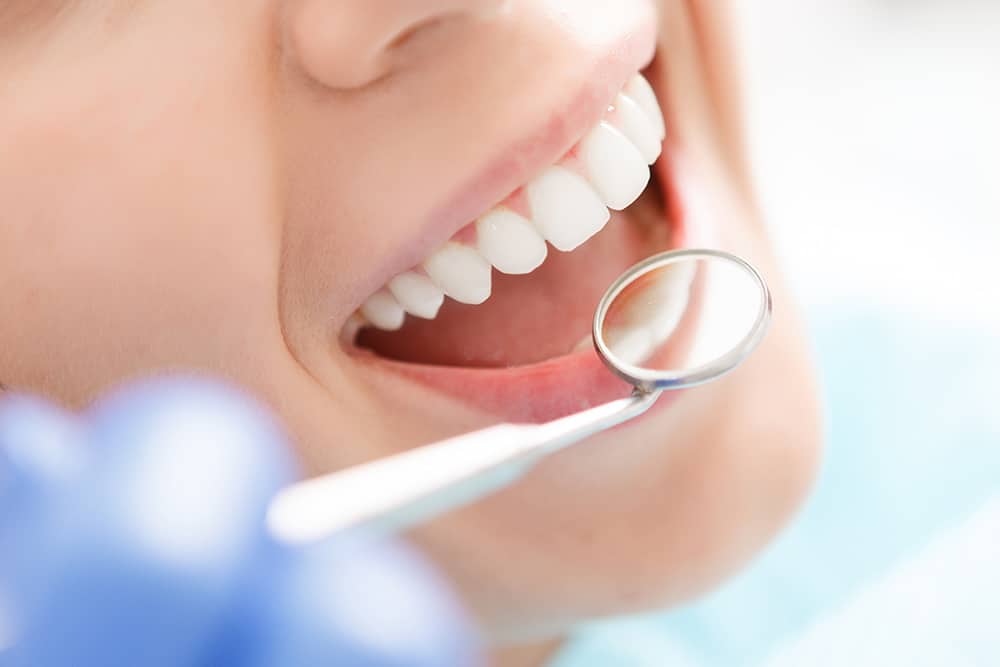Most people know that daily brushing and flossing will help them maintain good oral health. What they often don’t know though, is what the signs of poor oral health are. Your mouth is an intricate system of nerves, soft tissue, muscles, teeth and bone. And (sometimes) it will try to warn you when potential issues begin to arise.
At Beaches Dental Mona Vale, we recommend that you visit us every 6 months for a dental check-up. This allows us to monitor your oral health and identify any dental problems early on. Keeping up with great oral hygiene and 6 monthly dental visits can help you achieve optimal oral health.
Signs of Poor Oral Health
Below we discuss a few of the common warning signs of poor oral health. Should you experience any of the below symptoms, it’s important to book a consultation with your dentist for professional diagnosis and, if need be, treatment.
Persistent Bad Breath
It’s normal to experience bouts of short-term bad breath, but bad breath that persists may indicate a dental health problem. Bad breath, also known as halitosis, can be accompanied by a bad taste in your mouth.
Bad breath can be as a result of poor oral hygiene, decay, gingivitis or gum disease. It can also indicate issues beyond your mouth, for example, your digestive system. So, if you have bad breath that you can’t seem to get rid of, it’s important not to ignore it.
Swollen or Bleeding Gums
Irritated gums are one of the most common signs of an oral health problem. Healthy gums are light pink and do not bleed easily. If you find that your gums are red, inflamed or bleed for no reason or when brushing your teeth, this could be a sign of several oral health issues.
Gingivitis is a common cause of swollen and/or bleeding gums. Gingivitis, caught in its early stages, is relatively easy to cure. However, left untreated, it can develop into gum disease which can be harder to treat and can have an ill effect on your oral and general health.
Sensitive Teeth
Your teeth have layers of enamel for their protection. As your enamel becomes thinner with wear, the tubes that lead to your dental nerves are exposed. This results in tooth sensitivity. You may experience sensitivity when consuming hot, cold or sweet foods and beverages or when brushing your teeth, for example.
The enamel on your teeth can erode as a result of wear, eating acidic foods, hard brushing or other damage. Sensitivity can also occur when your gums recede, exposing your tooth root. This is especially common amongst patients with gum disease.
Tooth sensitivity can be treated. So, don’t suffer in pain – visit your dentist!
Tartar (Calculus) Build-Up
Plaque is made up of bacteria in your mouth, and the acid it produces plays a major role in tooth decay. Plaque that is left to build-up calcifies into tartar, which left untreated can become a major contributor to gingivitis and gum disease.
Tartar is the yellowish, white hard substance you may see accumulating on your teeth. It is commonly found in the ‘hard to reach’ areas of your mouth like in between your teeth and along your gum line.
Tartar is only removable with special equipment that your dentist or dental hygienist uses. Part of maintaining good oral hygiene and minimising the build-up of tartar is having routine professional dental cleans.
A Darkening Tooth
It’s normal for your teeth to lose their pearly whiteness with age. Exposure to things like coffee, tea, red wine and other heavily coloured drinks or food will also contribute to discolouration. When this type of discolouration occurs, it is usually noticeable on all your teeth. If you notice just a single tooth darkening or changing colour, this could be a sign of a problem.
If your tooth experiences mild trauma, it may darken temporarily, like a bruise and can heal in time. In cases of severe trauma to your tooth, permanent darkening may occur due to a dead nerve.
Another cause of a darkening tooth may be tooth decay. Tooth decay left untreated may result in the infection of the pulp of your tooth. This can lead to the darkening of your tooth and you may need a root canal to restore.
Loose Teeth
Your adult teeth may become loose as a result of trauma, but if you have one or more teeth become loose without explanation, this is more than likely because of poor oral health. Whether due to impact or poor dental health, loose teeth (or an already lost tooth) require urgent dental care.
Poor oral hygiene can put the soft tissues surrounding your teeth at risk of infection. Left untreated, your teeth can become loose. Brushing and flossing daily will remove most of the plaque from your teeth. But you need to make sure you’re brushing and flossing with the correct technique for it to be most effective.
If you have one or more loose teeth, you need to see a dentist for treatment. The loss of adult teeth can lead to a range of other oral health issues, so it’s important to prioritise tooth preservation.
Looking for A Dentist in Mona Vale?
Beaches Dental Mona Vale is a family-friendly dentist helping patients from across the Northern Beaches area achieve optimal oral health. Don’t wait for the signs of poor oral health to rear their heads. Our experienced dental team can help you stay on top of your oral health through regular check-ups and professional cleans.
The signs of poor oral health we discussed in this article generally mean something in your mouth isn’t quite right. Early detection of oral health issues can save you a lot of discomfort, time and money. So, if you’re overdue for your dental check-up, contact us today!

